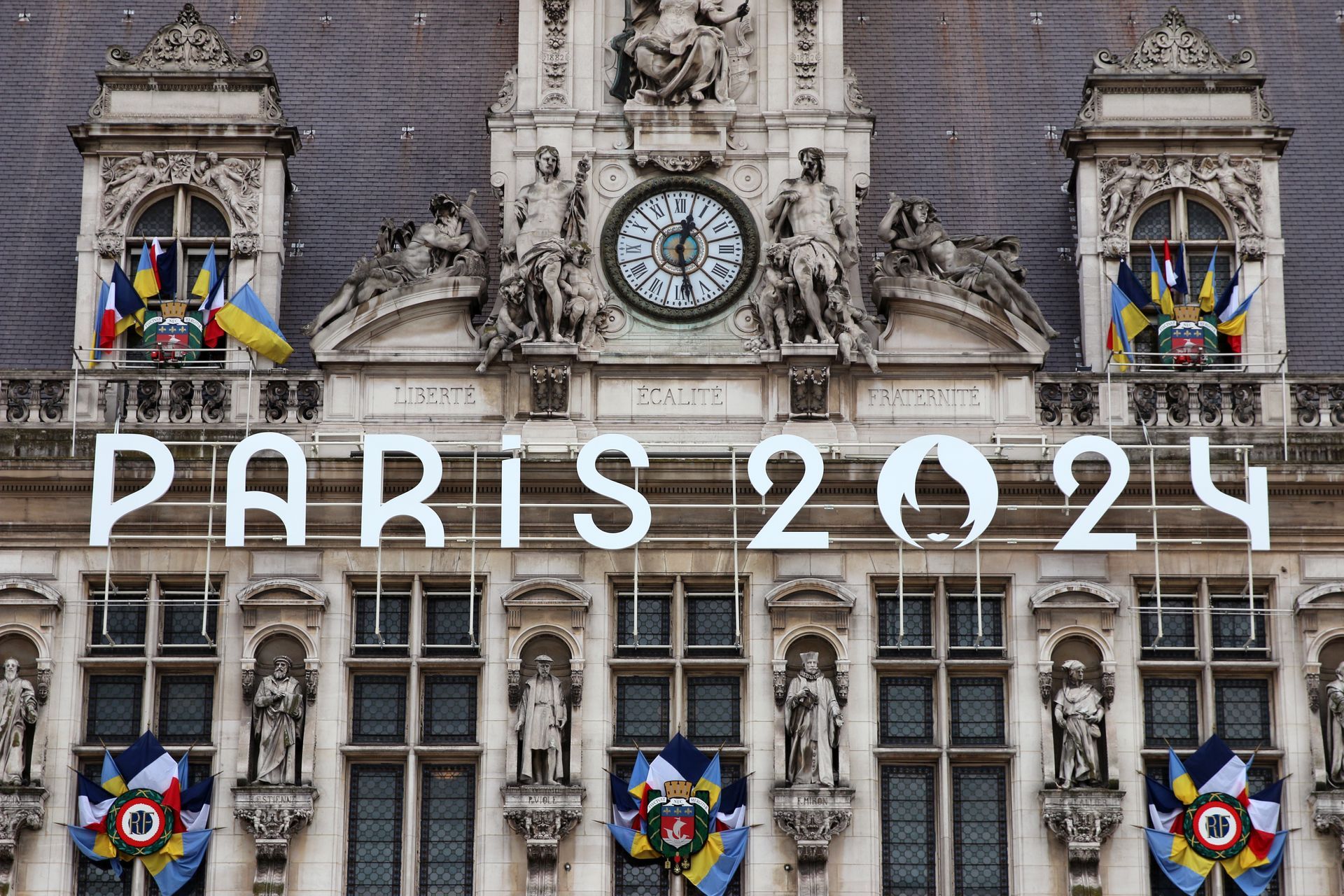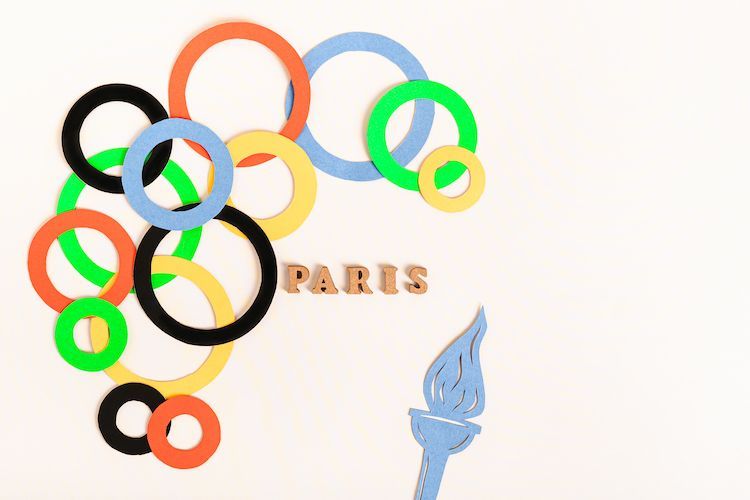Mission Accomplished! Not Yet.
The BPCIS annual retreat in Bintan was attended by eighty-eight leaders on the former ocean liner, now ship hotel, Doulos.
What happened at the opening ceremonies of the Olympic Games in Paris had disturbed, shocked and enraged Christians across the world. Here are two responses, reprinted with permission, for our reading and reflection.

by Dr Roland Chia | Jul 29, 2024 | Pulse
29 July 2024
One of the most significant virtues that has energised and shaped the Olympics since its founding in 776 BCE is respect. In the spirit of the Olympics, which strives for integrity and excellence, the virtue of respect is extremely important in governing the behaviour not just for the athletes who compete but also for the organisers of the Games.
For the competitors, respect for fellow athletes is a paramount and fundamental aspect of Olympic sportsmanship. Mutual respect is basic as athletes competing in the Games hail from different cultural and social backgrounds, religious beliefs, traditions and practices.
But the importance of respect extends beyond the competitors to the organisers of the Games. This is because in modern times, the Olympics is more than just a series of athletic competitions. It is a truly global spectacle that is viewed by millions throughout the world – an audience of diverse nationalities, cultures and religions.
That is why the parody of Leonardo da Vinci’s The Last Supper at the grand opening ceremony of the Olympic Games in Paris on July 26, 2024, is such a blatant transgression against the spirit and ideals of the Olympics. It is distasteful, insensitive and disrespectful, and reflects poorly on the organisers who allowed it.
During the Opening Ceremony, 18 drag queens re-created the scene of Jesus’ final meal with his disciples just before his crucifixion. The depiction featured half-naked performers behind a long table, with one performer, presumably representing Jesus, standing in the middle with a halo on her head. The drag queens on either side of her can be seen writhing suggestively along the table.
While some are of the view that the scene depicts an ancient Greek Bacchanal, a Roman festival honouring Bacchus, the god of wine and revelry, many regard it as a disdainful portrayal of the Last Supper. That is why the scene has sparked such vigorous backlash on social media.
The journalist Kyle Becker said on X that ‘the 2024 Paris Olympics has gone full Woke dystopian.’ She adds: ‘The opening ceremony was filled with transgender mockery of the Last Supper, the Golden Calf idol, and even the Pale Horse from the Book of Revelation. The Olympics has made it clear that Christian viewers aren’t welcome.’
Radio host Clint Russell concurs: ‘This is crazy. Opening your event by replacing Jesus and the disciples at The Last Supper with men in drag. There are over 2.4 billion Christians on earth and apparently the Olympics wanted to declare loudly to all of them, right out of the gate. Not welcome.’
Seemingly embarrassed by this insensitive scene, Marion Maréchal, a member of the European Parliament, said on X: ‘To all the Christians of the world who are watching the #Paris2024 ceremony and felt insulted by this drag queen parody of the Last Supper, know that it is not France that is speaking but a left-wing minority ready for any provocation. #notinmyname.’
Even Tesla’s CEO, Elon Musk, who describes himself as a ‘cultural Christian’ weighed in on this issue. He writes on X that the performance is ‘extremely disrespectful to Christians,’ adding that ‘Christianity has become toothless.’
If the scene is indeed a parody of the Last Supper, Christians must be aghast by this very blatant and very public bastardisation of the Christian Faith.
The Last Supper that Jesus shared with his disciples has profound significance for Christians. The breaking of bread and the pouring of wine foreshadows Jesus’ sacrifice on the cross of Calvary, where his body is broken and his blood shed, ‘for us and for our salvation’, as the Nicene Creed puts it.
During the Last Supper, Jesus also established the Eucharist and commanded his disciples (and the Church) to ‘do this in memory of me’ (Luke 22:19). The Church is to celebrate the Eucharist for in doing so she proclaims the Lord’s death until he returns at the close of the age (1 Corinthians 11:26).
Gavin Calver, the CEO of the UK Evangelical Alliance, expresses his revulsion at the depiction of the Last Supper calling it ‘utterly insensitive, unnecessary and offensive.’ He adds: ‘… it really was appalling to see Christianity so openly mocked in the opening with the unbelievably crass portrayal of the Last Supper.’
Bishop Robert Barron calls it a ‘gross, flippant mockery’ of the Christian Faith. France, which was once called the eldest daughter of the Church, the Bishop adds, ‘felt evidently, as it’s trying to put its best foot forward, that the right thing to do is to mock this very central moment in Christianity.’
Bishop Barron saw the insidiousness of all of this. ‘The deeply secularist, postmodern society,’ he writes, ‘knows who its enemy is; they’re naming it and we should believe them, they are telling us who it is.’ This provocative display indeed reveals much of Western society and culture, especially that of France. It is a society and culture which has lost its sense of transcendence and its sense of the sacred.
It has embraced a dogmatic and militant secularism that has not only emptied reality of the religious but has become hostile to religion and religious people. Consequently, it has become a society that no longer knows what it means to be respectful.
Respectful of a living religion that has played such a significant role in Western civilisation that without it, it would be difficult to make sense of its scientific culture, its jurisprudence, and the values of human rights, liberty and tolerance that it still cherishes.
Respectful to the 2.4 billion people in the world who celebrate the Eucharist every Sunday in their respective churches and according to their different ecclesiastical traditions, and who believe that Jesus Christ is the Incarnation of the second person of the triune God, the Saviour and Lord of humankind.
Respectful to the 36 million people in France who call themselves Christians.
Once we no longer know what it means to be respectful and how to show respect, something is lost to our humanity and to the human community. We see each other differently. We see ourselves in relation to others differently.
We no longer value the other as another human being. We no longer honour his dignity.
And when that happens, human relationality and society will slide from being kindly and tolerant to being beastly.

by Soo-Inn Tan Aug 1, 2024 | graceworks.com.sg/parody-of-the-lords-supper
The hottest topic in my Christian chat groups right now and indeed on the internet though this seems to be dying down as we await the next big thing, was one of the elements of the opening ceremony of the Paris Olympics. Apparently, there was an opening tableau that was a parody and a mockery of the Lord’s Supper. Here are my thoughts.
1. We need to be more educated in how we respond to things on the internet
Many Christians, including myself, are quite naïve in how we respond to things we see on the internet. Many post things on the internet that press the buttons on our most basic feelings, like feelings of injustice, or feelings of being besieged, or feelings of helplessness. When we encounter such postings we react.
Hence the many postings of concern and warnings about the supposed parody of the Lord’s Supper. But social media is limited in its ability to handle complex nuanced matters. Often, we are reading something that is second or third hand, and therefore seen through the interpretive lens of someone else. So, when I am confronted by a controversial item on the internet, I wait before I react. I wait to read the original source, I wait for editorial assessments from sites that are (more) trustworthy. I choose not to react. I take time to read, pray and reflect.
2. We need to be realistic about life in a fallen world
Even if it were true that the item at the opening ceremony was a parody of the Lord’s Supper, why are we surprised? We know that we live in a fallen world and there will be cultural expressions that would be against our deepest beliefs about what is true and beautiful. Of course we are upset, but why should we be surprised? Just look at some of the recent offerings on Netflix. Look at the movies, books, and music out there. Many carry values that would disturb followers of Jesus.
We have enough material to be upset about every day. And we have more subtle assaults on Christian values like a suffocating materialism and consumerism that we are confronted with all the time, presupposing a way of life that ignores the poor. Shouldn’t we be upset? We are in constant battle with Satan, the world, and our own flesh. These are powerful enemies. We should be on our guard all the time, trusting in God’s resources. But we shouldn’t be surprised when we encounter things that assault the purposes of God.
3. We need to be more confident in God and His sovereignty
Many are calling on Christians to speak up, or to do things to punish the Olympics organisers by boycotting the Olympics, etc., because we need to defend the dignity of God. I think God is a big boy totally capable of defending His own honour. There is no need to “bomb” those who insult God or hurt them in some way. Read Psalm 2. God laughs at any human effort to oppose Him.
It’s divine comedy to think that one can attack and hurt the Sovereign Lord. And Jesus said that He could call upon a divine SWAT team of 12 legions of angels if He wanted to (Matthew 26:53). Instead, God allows the wheat and the tares, good and evil, to grow together. But one day Christ will return to finally deal with the problem of evil. In the meantime, God’s people shouldn’t be shaken. Whatever happens, God is on His throne.
4. We need to allocate our attention wisely
We all work with limited amounts of attention. We need to be wise how we allocate it. While we are upset with a possible mockery of the Christian faith at the Olympics opening ceremony, many die, many of them children, in the ongoing conflict in the Middle East. But this is just the conflict that makes the news most often. Ongoing killing and destruction happen every day in places ranging from Ukraine to Myanmar.
Then there are the many dying without food and water and the many who die without hope and without Christ. I think such issues deserve more investment of attention from us. What are our priorities? Are incidents like the Olympic opening being used by the Enemy to distract us from more substantive issues?
I want to thank Rosie Perera for pointing me to a posting by Chery Lynn Cain on her Facebook page which reminds us that there is only one parody of the Lord’s Supper that is specifically named in the New Testament. In 1 Corinthians 11:27–34 we are told of Christians who participate in the Lord’s Supper together, a statement of their mutual love and unity, when in truth they were divided and in conflict with each other. God gets really mad at this, so much so that some had died as a result of God’s discipline on their parody. So there.
Ok ‘nuff said. Shields up.
Copyright ©2025. All rights reserved. Updated January 2026.
The Bible-Presbyterian Church in Singapore
4 Bishan Street 13, Singapore 579792